The University College of Agricultural and Environmental Pedagogy (UCAEP) hosted the students twice. The Azerbaijani students were in Austria from 21 May to 14 June, and the Ukrainian students went to Austria on 2 October and stayed there for 28 days.
As for the Azerbaijani students, their Erasmus program focused on agriculture in Austria. The mentors provided an insightful overview of various challenges affecting agricultural practices and food supply in the region.
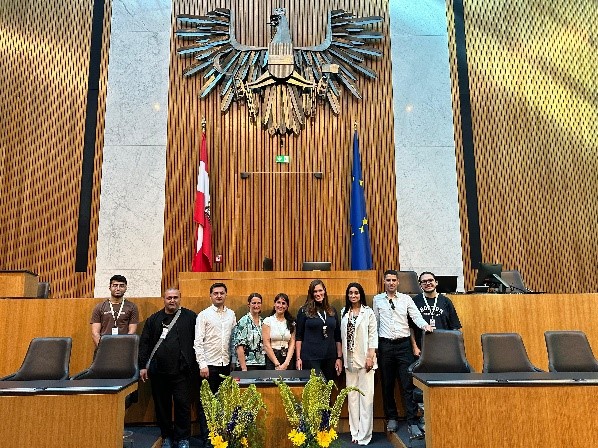
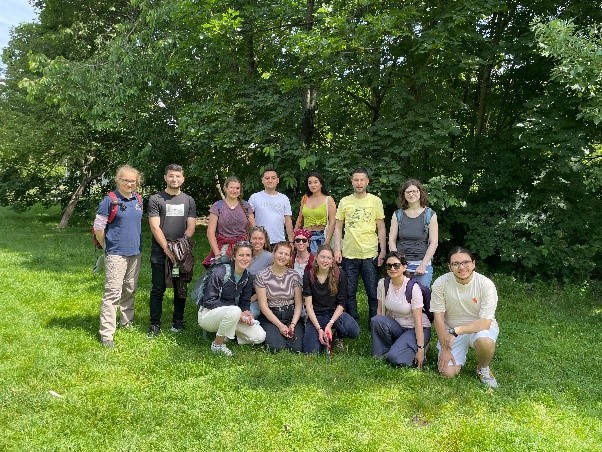
For the students, the interactive English lesson focused on improving pronunciation skills was organized by Beate Kralicek. The session included various engaging activities designed to improve understanding of English sounds and intonation. In addition, all students participated in educational games to reinforce the lesson.
The visit to the library was also very interesting. The library staff provided the students with comprehensive information on how to effectively use the library website, including accessing digital resources, searching for academic papers, and using various online tools available.
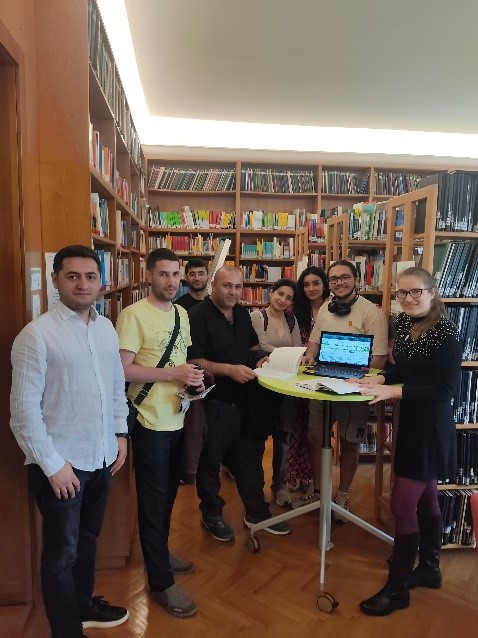
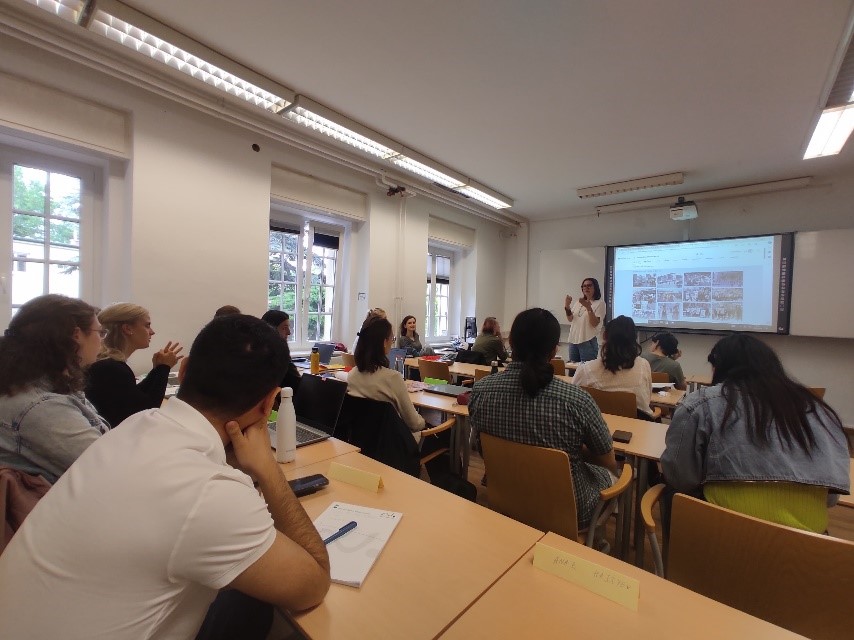
The individualized program, with a primary focus on promoting article writing, was very useful for the students. They all had individual meetings with different professors to discuss their articles in depth. These meetings provided valuable feedback and guidance on how to improve the work.
Students had the opportunity to work on their theses and articles. Each member of the group dedicated time to writing, researching, and refining their academic work. They used various resources available in the university library and online databases to support their writing.
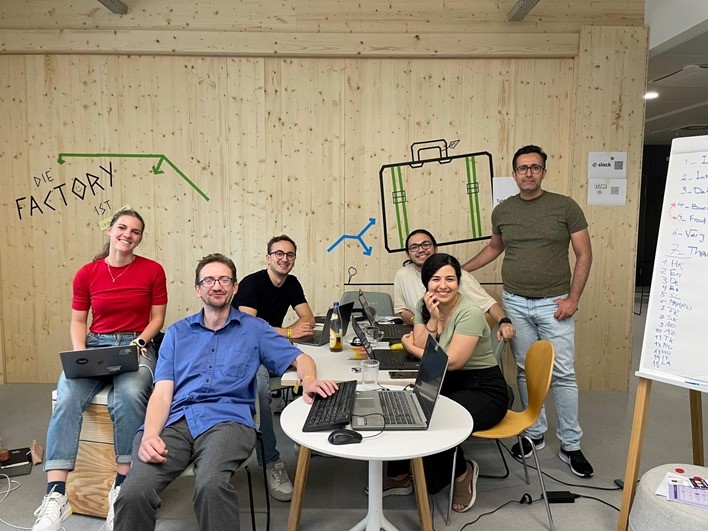
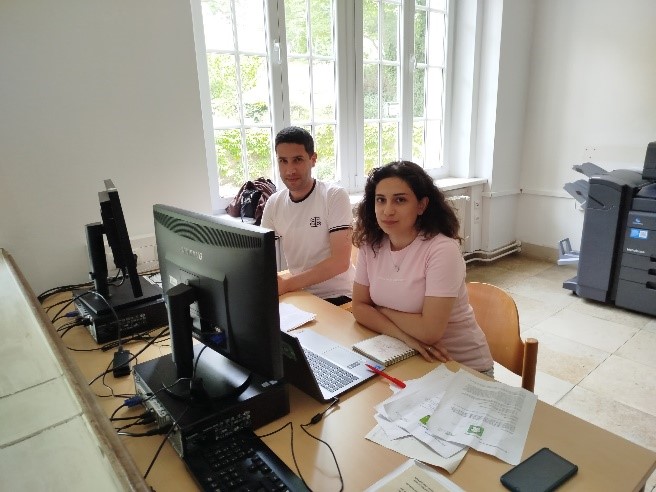
In addition, Ali, one of the group members, attended the Tech Jobs Fair-Vienna 2024. The fair was held at the Messe Wien Exhibition & Congress Center, where Ali interacted with industry professionals, attended presentations on the latest tech trends, and explored job opportunities in the tech sector.
Among the activities was the involvment into the filming reels and conducting interviews for social media, alongside taking photographs for dissemination purposes. The interviews with several students and faculty members were conducted, asking them about their experiences and insights related to their studies and work. Additionally, it was filmed short reels highlighting key features of the campus and ongoing projects. The goal was to create content that would effectively communicate the vibrant academic life and innovative research at our institution
The city tours were part of the students' cultural life in Vienna. During the internship, the students were not only able to improve their knowledge of the Austrian education system, but also to get acquainted with the culture of this country.
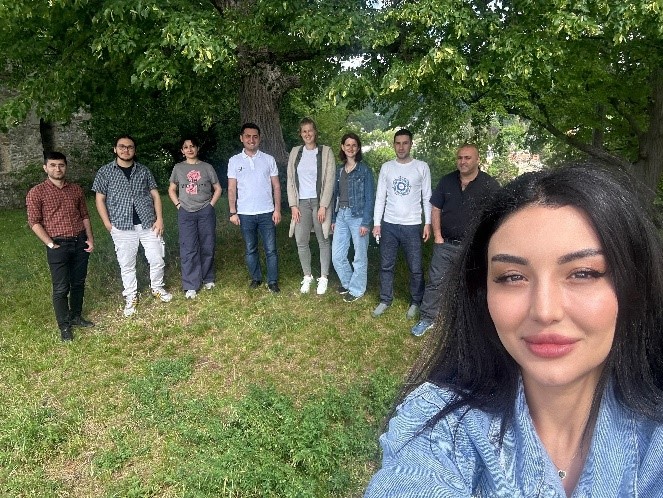
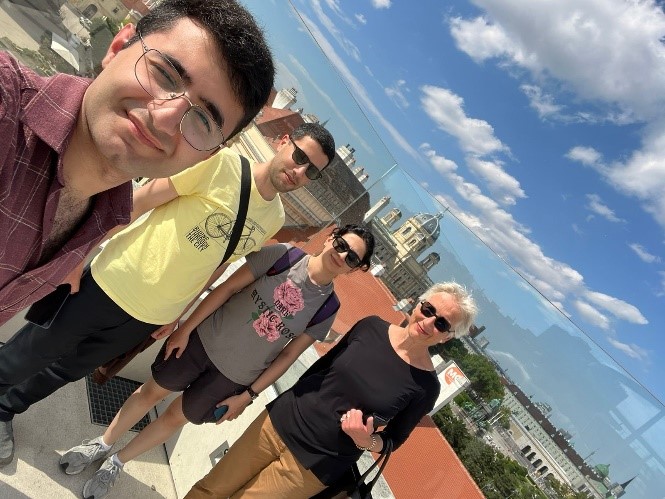
Feedback from Lviv National Environmental University (Ukraine) students about their internship in Austria as part of the ERASMUS UniClaD project
We visited the University of Agricultural and Environmental Sciences in Vienna as part of the international UniClaD project “Enhancing the capacity of universities to initiate and participate in cluster development based on innovation and sustainability” under the ERASMUS+ K2 program. The internship lasted one month from September 14 to October 10, 2024.
During this period, we visited not only Vienna, but also other cities, where we visited schools and had the opportunity to share our experience with students and teachers of these schools, which helped us learn a lot about environmental aspects in these regions of Austria. The program was intense and interesting, we spent a lot of time at the university, where there were various conferences and workshops (for example, “Klimakonferenz” - where the problem of climate change was discussed).
At the end of the program, you presented the work of our teams on the topic: “Analysis of the tourism management strategy in Vienna”.
Thanks to this program, we learned a lot about new ways to improve the environment from experts in this field and got acquainted with the culture of other countries.
Yuliia & Tanya & Olena
It was our first day (September 14th) at the University College of Agricultural and Environmental Education. There was a conference where we met the teachers Veronika and Klaus. Veronika showed us the University College building and told us about the different faculties where students can study.
It was also incredible to meet students and teachers from Tanzania, they told about their studies and introduced the culture of their country. We shared our interests and talked about the fields of study at our Lviv National Environmental University. We discussed ideas about conservation and ways to improve the environment.
The next step was to get acquainted with the route we all took to visit Vienna. We exchanged photos of our hometowns and discussed the most interesting sights. At the university, we were also treated to national cuisine, tasted various dishes and delicious drinks, got to know our friends from Tanzania better and arranged to meet the next day. It is also nice to see that the university offers individual meals, for example for vegetarians.
CONCLUSION: It was very interesting to get to know the climate of the country in Africa, to get more information about the problems of the agricultural sector in Tanzania. Our first impression of the university was positive, because it is really nice space and conditions for studying.
SUMMARY OF SEPTEMBER 15TH AND 16TH
These days were really bad weather, so we spent more time with other students and teachers. Such communication helped us to get to know each other better. On Monday we started our trip through Austria. We went to Salzburg, but it was not supposed to be our first stop because the weather changed the plans. So it began.
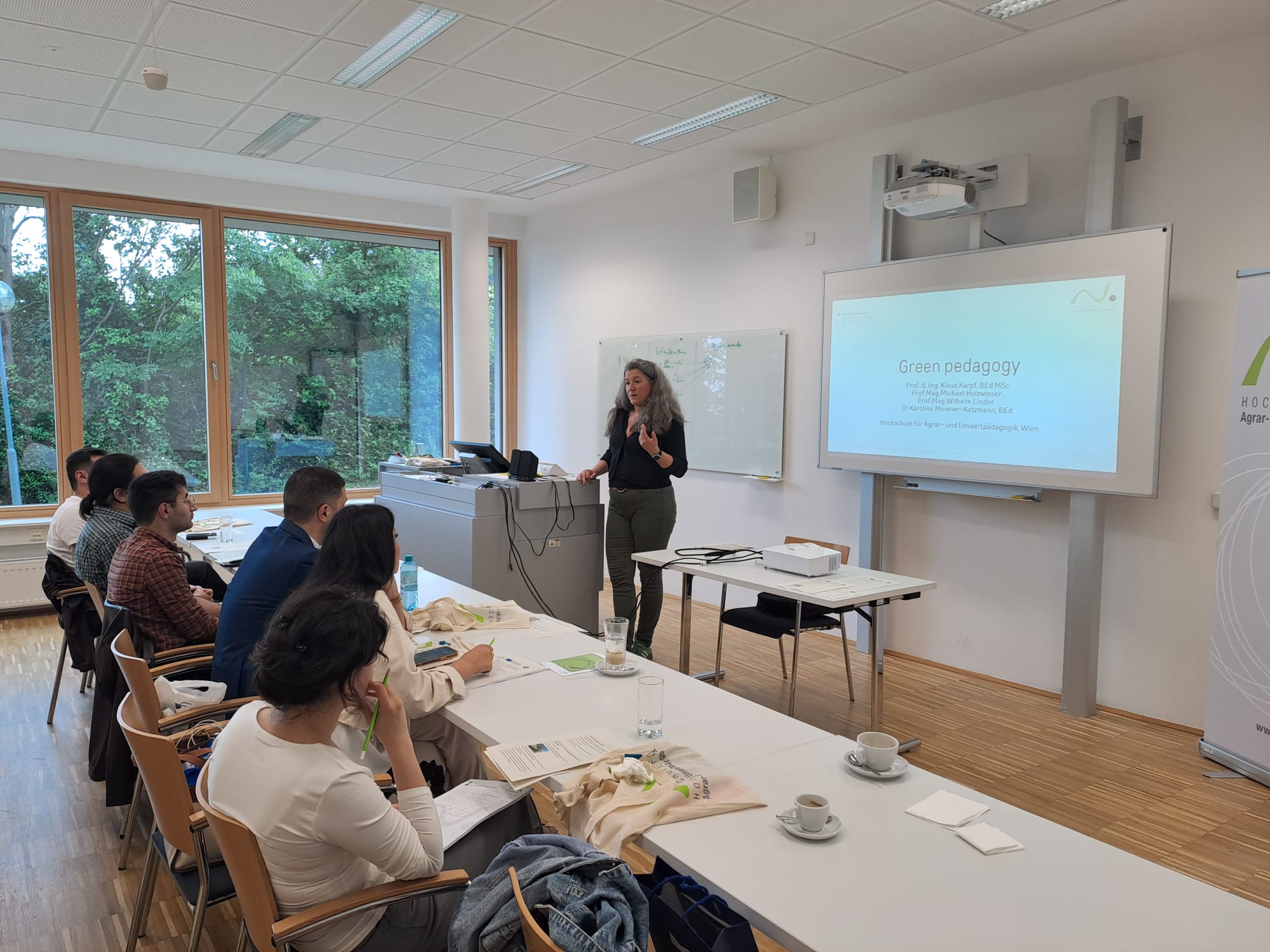
Yuliia & Tanya & Olena
On this day (23 th of September) , we attended the “Klimakonferenz” in University College for Agrarian and Environmental Pedagogy, which aims to try to do something about climate change.
Various topics were discussed, such as: floods affecting farms; critical increase in carbon dioxide concentration; rising temperatures (not only air), etc.
During the conference it was planned to create a scheme of ideas of all students from different schools to solve certain climate problems. One of the themes was that it is important to understand that we need to start changes by ourselves. It is necessary to involve young people to give them new ideas, because the old generation does not pay much attention to it.It takes a long time to make significant changes. Countries need to work together because everyone is responsible for the future of the climate, not just some, but some countries need to do more to make positive changes (e.g. Asian countries).
Not only production has to change, but we also have to think about nutrition.
So we have to try to adapt, not just change things.
It was very interesting to learn about real climate change and that it is accelerating. There were also workshops where students were involved.
The conference continued on September 24th and we were involved in the process of creating a chart of the students' ideas on how to positively influence the climate by doing something useful in schools.
First, a group of students from each school presented their ideas. Each of the ideas was interesting because they could easily be implemented in everyday life. For example, one of the schools talked about an app that monitors the local weather. It is important to have information from local people, so this app also gives information to the population.
There was another project about grape production, because climate change is making it difficult to grow grapes for wine.
Afterwards, in the workshop, we worked with students from the Ursprung School (whom we met during our tour of Austria) and others.
The photo shows our discussion with the students and teachers.
It was nice that everything was explained to us in English (because the conference had to be in German) and everyone helped us, so we completed the task quickly.
Yuliia & Tanya & Olena
On September 27th we made a trip to Tulln together with Sigi and Hannah. In Tulln we visited the House of Digitalization, which is located 15 minutes from the train station. The "House of Digitalization" in Tulln is the central contact point in Lower Austria for companies and experts in the field of digitalization. On a total area of 4,200 square meters, there will be a showroom and event area, lecture halls of the University of Applied Sciences Wiener Neustadt, an indoor and outdoor networking zone, office units and a "FabLab" science laboratory of the Province of Lower Austria. The goal is to inspire visitors of all ages with an annually changing multimedia presentation of digitization topics.
After the museum we went to the main square of Tuln. On the way, we also visited the beautiful St. Stephen's Church and walked through the streets of the town.

